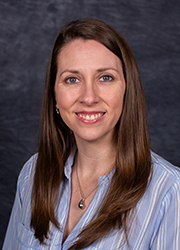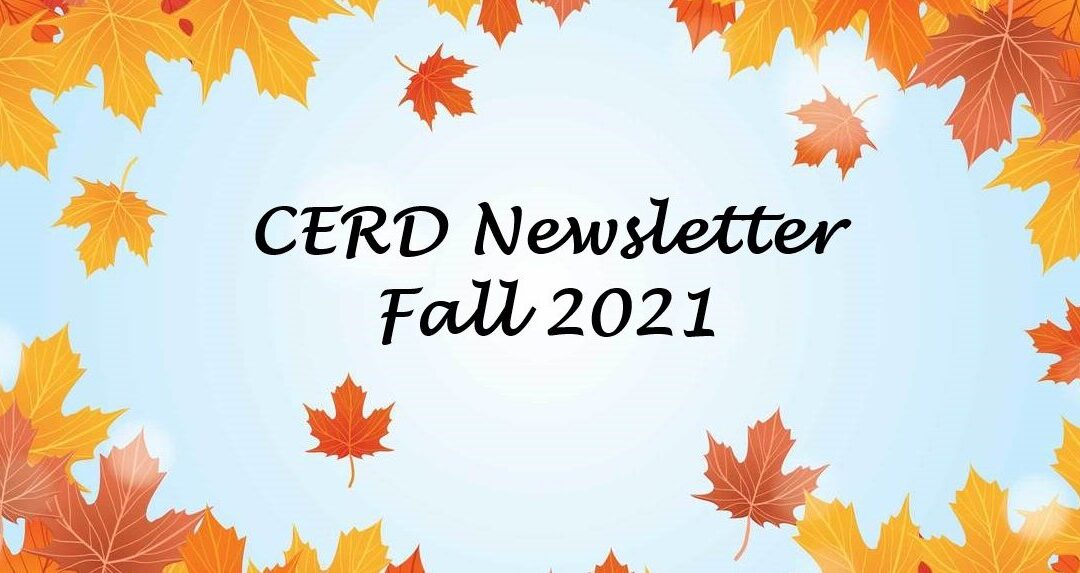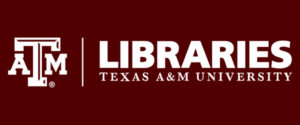
Research Dean’s Corner
One year into my role as Associate Dean for Research, I reflect on the opportunities I’ve had to work more closely with the faculty in our college and with the various committees and units within our college and across the university that supports our researchers and our research enterprise at Texas A&M University. In early May of 2021, I was able to meet individually with our pretenure faculty to better understand their struggles, successes, setbacks, and progress as they set up, launch, and sustain their research programs. Through these conversations with many of our early career faculty, I’ve gotten important feedback on what types of professional development and services or programs would be beneficial to support our faculty in the area of research and proposal development. I look forward to working with our CERD Pre-award Office and our CEHD CPI to implement some of these supports for our faculty.
At the end of May 2021, with Jack Baldauf and Frank Ashley among others, I had the opportunity to help organize and facilitate a 2-day Livable Texas workshop on Education that brought together researchers from across the university to discuss potential solutions for the impacts of COVID-19 on education, including learning loss. Researchers from our college were well represented in this workshop and brought their expertise on teacher education and professional development, educational technologies, telehealth, and developmental and learning sciences to contribute to meaningful dialogue and problem-solving. Several research teams grew out of this workshop and these teams will be developing grant proposals for submission to federal agencies or foundations. I will continue to work with our CEHD CPI and the TAMU’s Division of Research to find ways to support the interdisciplinary and cross-college research interest groups that have emerged from this workshop to sustain on-going collaborations across the academic year. For more information on this university-wide interdisciplinary workshop, please click here.
This summer, I began conversations with Ben Herman who will begin his 2-year term as CEHD CPI Chair this fall. I learned about some of the exciting initiatives and goals that Dr. Herman has as the incoming Chair of CEHD CPI, and I look forward to collaborating with him and the CEHD CPI to support his plans to further improve the research environment and processes for our investigators. In addition to continue working closely with the CEHD CPI, I continue to hold regular meetings with the leadership teams and representatives from the Human Clinical Research Facility (HCRF), Vice President for Research (VPR) Office, Sponsored Research Services (SRS), and the University Research Council (URC). I find that it is critical to maintain close communication and coordination with all our constituents who play key roles in supporting the research infrastructure, operations, and processes that impact our investigators in our college and at the university. I will continue to work hard to champion for our investigators and to find ways to coordinate with key constituents and units to optimize research processes and mechanisms for our researchers.
As we kick-off a new academic year, our interim VPR, Jack Baldauf, charged all the associate deans for research at the University to identify the highest research priorities for their colleges. I worked closely with our CEHD CPI and our University CPI representatives to seek feedback from our PIs and faculty in our college. I will synthesize the feedback and produce a brief report for the Division of Research. In addition, I will work closely with Dean Michael de Miranda to identify signature research thrusts for each department and for our college at large that will leverage on our research strengths and capabilities to continue moving the trajectory and impact of our research enterprise in the college forward and upward.
Consistent with my firm belief and practices of communication and coordination, please always feel comfortable to reach out to me if you have any questions or if I can support you with your research efforts in any way. Our CERD Pre-award Office is also here to help you with your grant proposal development. Please remember that we are here for you! Until next time, thanks and Gig `em!
Council of Principal Investigators (CPI)
Hello CEHD community! I am Dr. Ben Herman, an Associate Professor of Science Education with a joint faculty appointment in the Department of Teaching, Learning and Culture and the Department of Biology. I look forward to serving as the new chair for the Council of Principal Investigators (CPI). The CPI is committed to the continued improvement of the research environment for students, faculty, and staff. We anticipate our first meeting being in mid-September, and we plan to continue holding meetings via zoom for the near future due to the pandemic. Your CPI representatives are listed on the CPI webpage: https://mycehd.tamu.edu/faculty/research-office/council-of-principal-investigators/. Also, we have added a “suggestion box” button to the CPI webpage where you can submit ideas and/or address topics that the CPI may consider in the interest of improving the CEHD research environment. Please let us know how we can help.
Research Fellow
Howdy, I’m Dr. Lace Chen, and it is my honor to serve as the CEHD Research Fellow. I am currently an Associate Professor and the Director of the Heath Promotion and Genomics Lab in the Health & Kinesiology Department. My lab consists of three post-doctoral associates, four Ph.D. students, five master’s students, and a number of graduate and undergraduate research assistants. I am also the mother of a child with special needs. My son, Grant, suffers from a rare disorder called infantile spasms that causes him to experience severe developmental delays and have autism spectrum disorder. Conducting high quality research has always been very challenging, especially for working moms, but with the assistance of our HLKN Senior Research Development Officer Dr. Jim Izat, and the outstanding College of Education Research & Development (CERD) pre-award and post-award staff, I have consistently secured the grant funding I need. Currently, I have 11 active grants totaling ~$5 million, and this year I have had 13 articles accepted for publication in several prestigious journals. I appreciate the excellent and timely support and encouragement that I have come to depend on from Dr. Izat and the CERD staff. In this upcoming year, as we will all be doing our best to overcome the significant professional and personal challenges posed by COVID-19, I will work hard to be an effective liaison between Dr. Jeff Liew, CEHD Associate Dean for Research, the CERD staff, and all CEHD faculty and researchers. There are so many amazing CEHD resources and people that are ready to assist you in your efforts to gain the research funding you need that there really is no need to try to do everything by yourself. For me, research is best accomplished through teamwork and the assistance that will increase your productivity is right at your fingertips! If you have any questions or suggestions, please do not hesitate to contact me at lacechen@tamu.edu.
Pre-award Updates


FY 2021 Research Funding Summary
Fiscal Year 2021 has been a banner year for research at CEHD! The college set a record with $43M in new awards, surpassing the previous record of $38M in 2018 and nearly doubling the average new awards per year since CERD was founded. Research expenditures continued to trend upward, reflecting the growing, valuable work at CEHD.

SRS Update: SRS proposal administrator Laura Hill has left her position at TAMU to grow her own business. Until a new SRS proposal administrator is assigned to CEHD, we will be working on a temporary basis with several SRS personnel. What this means for you: The best way to avoid confusion or delay in your proposal submissions is to skip the direct email to SRS and instead notify CERD of your upcoming proposal(s). We will contact SRS on your behalf and work as part of your proposal team to ensure a hassle-free submission of a competitive proposal. Our pre-award specialists offer proposal services above and beyond what SRS provides, so please contact us to discuss how we can help you with your next submission! You can find our Proposal Notification Form at: https://mycehd.tamu.edu/research-development/proposal-notification-form/
USRI Awardees: This year’s Undergraduate Student Research Initiative generated more applications than the College could fund. While we regret that we could not accommodate all requests, we are excited by the interest generated by the program and hope to provide funding for more students next year. We look forward to seeing their students’ research presentations next spring at Student Research Week!
Coming Soon: CEHD Proposal Guidelines Looking for a one-stop-shop to answer all your proposal submission questions? If so, you’re in luck. Our staff is currently finalizing the first edition of the CEHD Proposal Development Guide. In it, you will find the information you need to submit proposals for external funding, including: institutional information and resources, proposal development timelines, and explanations of waivers, cost sharing, indirect costs, and cost principles. More importantly, it contains instructions for working with the CERD pre-award office as well as SRS to prepare and submit a competitive proposal. You’ll want to keep this guide handy!

CERD Pre-Award: What you didn’t know you needed!
When: Friday, October 29 at 10:00 am
Where: Harrington 801A and Zoom
The CERD pre-award team is excited to offer our first Coffee Chat of the fall semester! We will discuss our new service offerings and how to work with us to develop and submit competitive proposals. Coffee and baked goods will be served at the in-person event.
Register here: https://tamu.zoom.us/meeting/register/tJ0ldO-gqTstHNa-SjibdMkXB6zHO2y1vlUP
Outreach Services Update
CERD Outreach has continued to find creative ways to engage with our communities and school district partners throughout the pandemic. As each area of our lives has adapted to new ways of interacting, we have also pivoted to more virtual formats including Zoom meetings on the go and phone conferences! Many thanks to new faculty members, including Dr. Hope Gerde and Dr. Marc Goodrich (TLAC), who both were quick to agree to virtual meetings with potential collaborators during the summer months. Additionally, Dr. Tyler Prochnow (HLKN) was available for collaborative new meetings that included social distancing and Zooms.
The summer months offered several conferences that provided safe opportunities to engage our stakeholders from an early childhood conference in northwest Houston to meeting superintendents of rural school districts in Round Rock. Also this summer, we were able to connect with principals from around the country at the annual NAESP (National Association of Elementary School Principals) Conference in Chicago. This conference held in early July was the first conference held in Chicago since the pandemic. Pictured is Amy Jurica Hinnant, Outreach Manager and Dr. Val Hill-Jackson (TLAC) at the conference.
Data Management Seminars Offered
Research data management (RDM) is a term that describes the organization, storage, preservation, and sharing of research data. It involves the everyday management of data during the lifetime of a research project and involves decisions about how data will be preserved and shared after the project is completed (for example, depositing the data in a repository for long-term archiving and access). The processes involved in RDM are more complex than simply backing up data on a thumb drive and ensuring that sensitive data is kept secure. Managing data includes using file naming conventions, organizing files, creating metadata, controlling access to data, backing up data, citing data, and more. Research data management is a complex issue, but when done correctly from the start, could save you a lot of time and hassle at the end of the project.
The Texas A&M University Libraries offer workshops on a variety of research data management topics that provide best practices for all disciplines. Attendance at these workshops fulfill requirements for the G.R.A.D. Aggies Certificate Program and the Responsible Conduct of Research Supplemental Training Program. Workshops are online via Zoom unless otherwise specified – visit the link above for dates and times offered.
Data Management Plans that Work for You: Data Management Plans (DMPs) are increasingly required by funders and publishers, but just importantly, they can help you think through your research data management practices – saving you time and grief. In this workshop we will take a deep dive into the why and how of Data Management Plans and apply them to various funder requirements.
Audience: This workshop is helpful to anyone who works with research data at any point in the research process but particularly graduate students, faculty and staff applying for grants.
Exploring and Navigating Data Danger Zones: The path to managing, preserving and sharing research data teems with danger zones. This workshop explores such data danger zones as article retractions, non-reproducibility, security losses and violation of funder mandates. We then highlight research data management practices and tools to navigate this path effectively.
Audience: This workshop is helpful for researchers in any discipline and stage in their career. Attendees currently planning or conducting research will benefit most from this workshop.
Keeping your Research Data Out of the “Data Dumpster”: Publishing research data is more than uploading a few spreadsheets and a readme file, but it doesn’t have to be intimidating either. This workshop demonstrates tools to locate common data collection standards, reviews funder and publisher data sharing requirements and suggests criteria to evaluate repositories for preserving or sharing your research data.
Audience: This workshop is helpful for anyone who works with research data. Those currently planning or conducting research who are already familiar with research data management or have attended Managing Research Data: A Guide to Good Practice or Creating a Data Management Plan will benefit most from this learning experience.
Publishing Data in the Texas Data Repository: Researchers are often required by journals and funders to publish research data. The University Libraries provide access to the Texas Data Repository; a platform for publishing and archiving datasets created by TAMU faculty, staff, and students. This workshop will introduce participants to FAIR Data Principles, share how to select a data repository, and demonstrate how to describe and publish data in the Texas Data Repository.
Audience: This workshop is most helpful for faculty, staff, students who plan to publish research data.
Creating Research Data Management Plans Using the DMPTool: A good data management plan can save time, increase research efficiency, satisfy funders’ requirements, and make reproducibility and sharing easier. This interactive workshop will examine why Data Management Plans (DMPs) are important and the components of a basic DMP. We will also walk you through how to create a DMP utilizing the powerful DMPTool step by step.
Audience: This workshop is helpful to anyone who works with research data at any point in the research process, but particularly graduate students, faculty and staff applying for grants.
Incorporating Census Data in Your Research: Census data can be used to supplement your research. Including demographic or economic data can round out your research products for a more complete picture. In this workshop you will learn about census geographies, major census data products such as the Decennial Census and the American Community Survey, and how to download census data for analytic or GIS software.
Audience: This workshop is most helpful for faculty, staff, students who are unfamiliar with the new census data website.
Optimizing Metadata to Make Your Research Data Findable, Searchable & Usable: Trying to remember where that file is that you saved? Unable to recall enough details to make your research reproducible or even to reuse your own data? Good metadata documents the details of your research and facilitates search and retrieval of the data within a data repository. This workshop will help you develop the best metadata strategy as suited for your research, discipline, and data needs.
Audience: This workshop is helpful to anyone who works with research data at any point in the research process, but particularly graduate students, faculty and staff creating a data management plan.
Research Data Management Sandbox: Attendees will learn the principles of data management with some real data samples by:
- Discovering and downloading a publicly available data set
- Analyzing the dataset for attributes of well managed data
- Scoring a Data Management Plan for qualities of well curated research data
Audience: This workshop is helpful for researchers in any discipline and stage in their career.
Managing Research Data: A Guide to Good Practice: Sound data management practices can ensure long-term usability of your data, increase your productivity, and promote collaboration. This interactive workshop will teach you how to think about your data so that you can manage it more easily throughout your research process. We will cover best practices for workflows, file management, documentation, storage, and preservation.
Audience: This workshop is helpful for researchers in any discipline and stage in their career. Attendees currently planning or conducting research will benefit most from this workshop.
Introduction to Open Science Framework: Open Science Framework (OSF) is a free and open source project management repository that supports researchers across the project lifecycle. Researchers use OSF to collaborate, document, archive, and share materials for broader dissemination. OSF enables connections to the many research platforms researchers use to streamline their process and increase efficiency. Attendees will learn about the benefits and basic features of the platform.
Audience: This workshop is helpful for researchers in any discipline and stage in their career.
Best wishes for a safe and happy semester!






